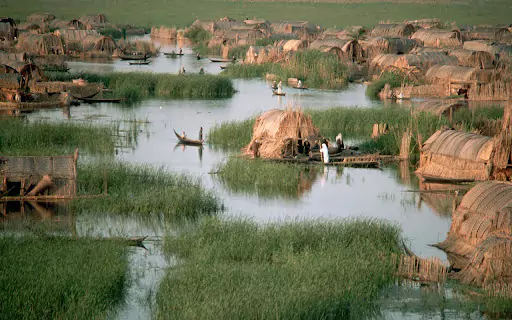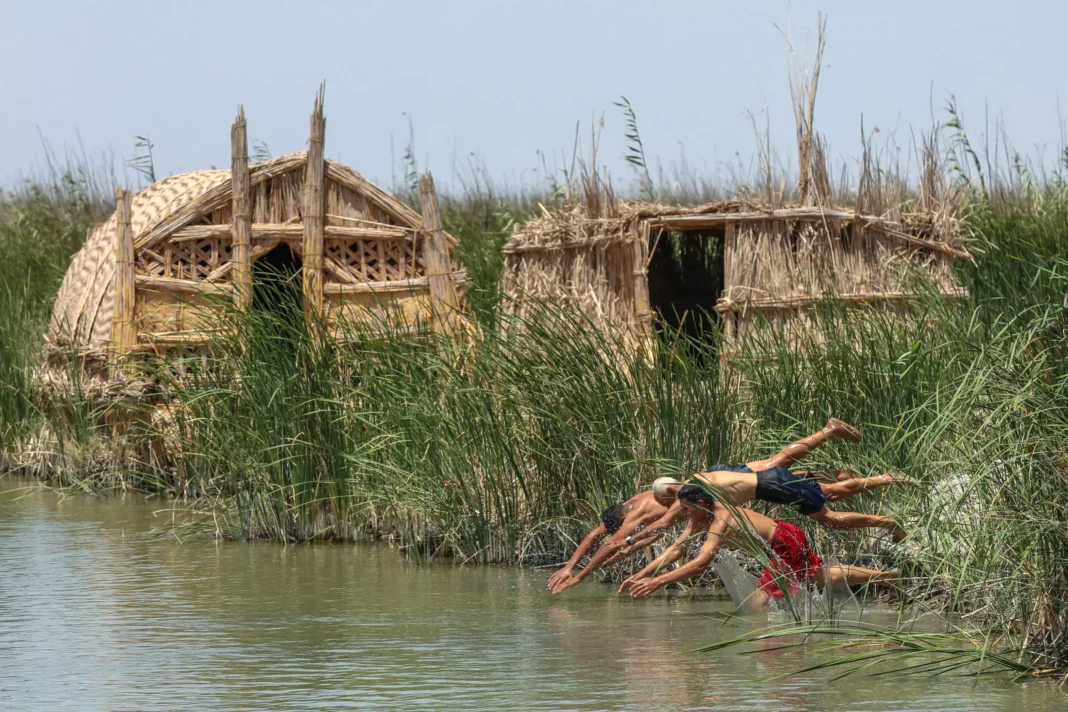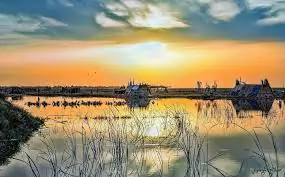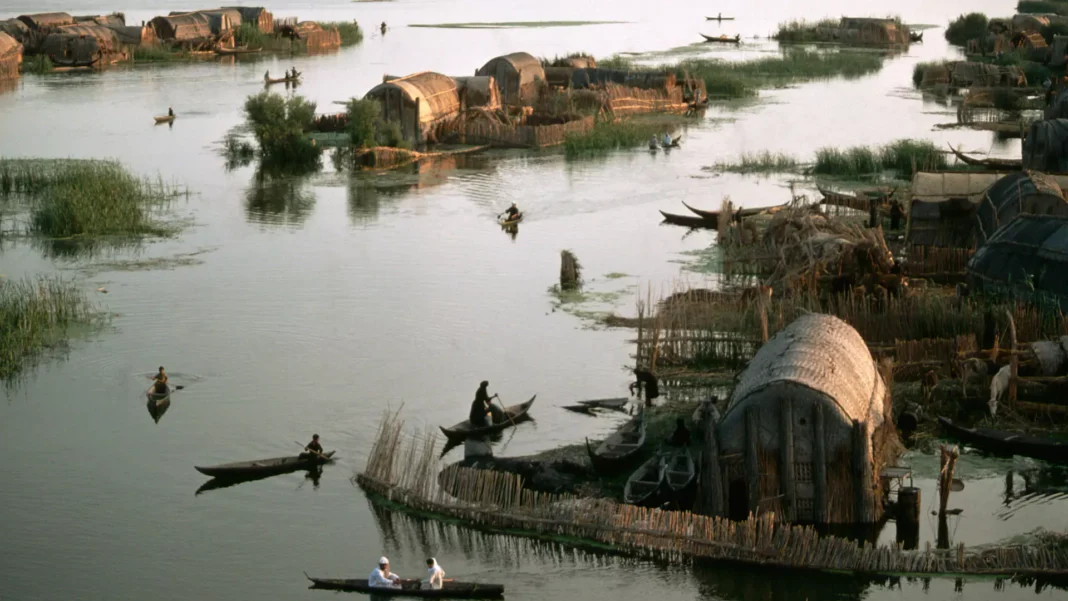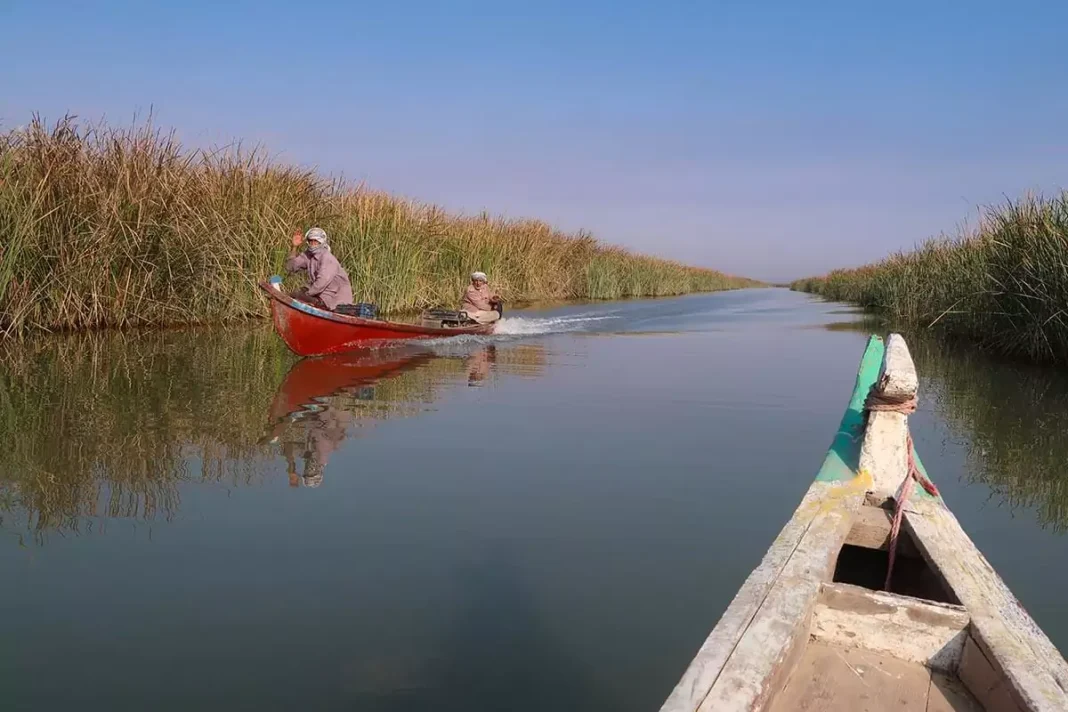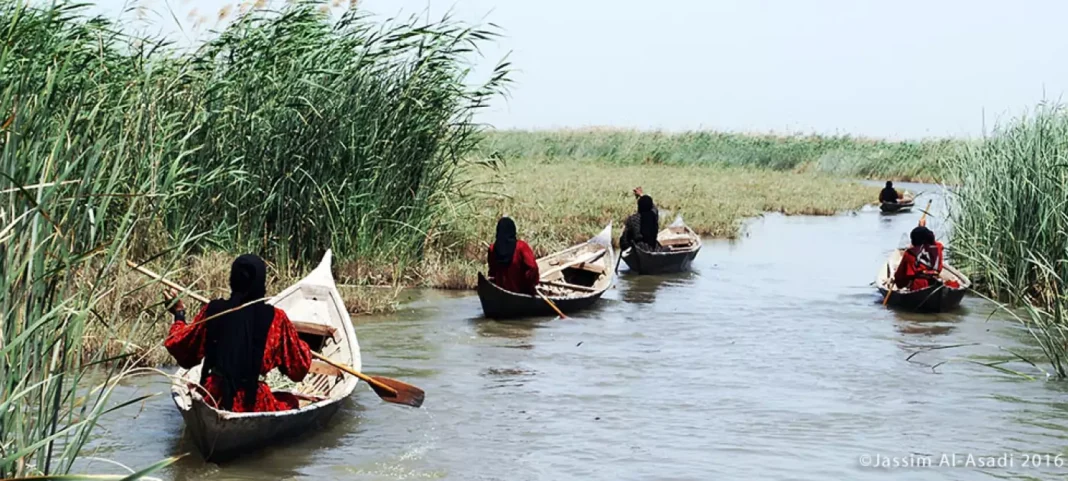The Iraqi Marshlands, a vast network of wetlands in southern Iraq, offer a unique and captivating travel experience. This extraordinary ecosystem, often referred to as the “Garden of Eden,” is a haven for biodiversity and a testament to the resilience of nature and human culture. By choosing eco-tours in the Iraqi Marshlands, you contribute to the preservation of this delicate environment while immersing yourself in the rich cultural heritage of the Marsh Arabs.
Why Choose Eco-Tours in the Iraqi Marshlands?
Eco-tours prioritize minimizing environmental impact and maximizing benefits for local communities. In the Iraqi Marshlands, this means:
- Preserving the Ecosystem: Eco-tours adhere to responsible travel practices, ensuring the protection of the marshes’ fragile flora and fauna.
- Supporting Local Communities: These tours often employ local guides, boatmen, and cooks, directly contributing to the economic well-being of the Marsh Arabs.
- Authentic Cultural Exchange: Experience the unique traditions, cuisine, and lifestyle of the Marsh Arabs, fostering cultural understanding and appreciation.
Exploring the Iraqi Marshlands: Eco-Tour Activities
Eco-tours in the Iraqi Marshlands offer a variety of activities that allow you to connect with nature and experience the local culture:
- Boat Trips: Glide through the waterways in traditional mashoof boats, observing diverse birdlife and encountering water buffalo.
- Village Visits: Interact with the friendly Marsh Arabs, learn about their unique way of life, and witness traditional crafts like reed weaving.
- Birdwatching: The marshes are a paradise for bird enthusiasts, with species like the Sacred Ibis, African Darter, and Basra Reed Warbler.
- Photography: Capture stunning landscapes, unique wildlife, and the captivating beauty of the marshland environment.
- Stargazing: Enjoy breathtaking views of the night sky, far from city lights, in one of the world’s oldest inhabited regions.
Popular Eco-Tour Destinations in the Iraqi Marshlands
- Chibayish: Known for its vibrant birdlife and traditional reed houses.
- Al-Hammar Marsh: The largest marsh, offering diverse ecosystems and cultural experiences.
- Al-Hawizeh Marsh: A UNESCO World Heritage Site, home to unique biodiversity and archaeological sites.
(Include a map highlighting these locations and other points of interest.)
Choosing the Right Eco-Tour
When selecting an eco-tour, consider these factors:
- Operator’s Commitment to Sustainability: Look for operators who prioritize environmental protection and community involvement.
- Group Size: Smaller groups minimize impact and allow for a more personalized experience.
- Accommodation: Choose eco-lodges or homestays that utilize sustainable practices.
- Activities Offered: Select tours that align with your interests and desired level of activity.
Tips for Sustainable Travel in the Iraqi Marshlands
- Pack Light: Reduce your environmental footprint by bringing only essential items.
- Respect Wildlife: Observe animals from a distance and avoid disturbing their natural behavior.
- Minimize Waste: Carry a reusable water bottle and avoid single-use plastics.
- Support Local Businesses: Purchase handicrafts and souvenirs directly from local artisans.
- Learn Basic Arabic Phrases: Show respect for the local culture by attempting to communicate in their language.
Essential Arabic Phrases for Travelers in the Iraqi Marshlands
- Greetings
- Hello: As-salamu alaykum (as-salamu alaykum)
- Good morning: Sabah al-khair (Sabah al-khair)
- Good evening: Masaa al-khair (Masaa al-khair)
- Thank you: Shukran (shukran)
- Directions
- Where is…? Ayna…? (ayna)
- Left: Yasār (yasar)
- Right: Yamīn (yameen)
- Dining
- Delicious: Laḏīḏ (latheedh)
- Water: Maaʼ (ma’a)
- Bill: Al-ḥisāb (al-hisab)
- Emergencies
- Help: Musāʻadah (musa’adah)
- Doctor: Ṭabīb (tabeeb)
- Police: Shurṭah (shurtah)
What to Expect on an Eco-Tour in the Iraqi Marshlands
Embarking on an eco-tour in the Iraqi Marshlands, also known as the Mesopotamian Marshes, offers a unique blend of natural beauty and cultural immersion. Here are some real-life stories and highlights from travelers who have experienced this unforgettable journey:
Habib Al Jurani’s Story
Habib Al Jurani, who left Iraq in 1990 for the United States, returned to his ancestral homeland for a family visit. He was mesmerized by the lush marshes, which he described as “one of the most beautiful places in Iraq”2. Habib spent his days paddling down the river bends, picnicking with locals, and experiencing the traditional lifestyle of the Marsh Arabs. His visit not only reconnected him with his roots but also shattered the misconceptions many have about Iraq2.
Mahdi Al Mayali’s Experience
Mahdi Al Mayali, a local who raises water buffalo and sells their milk, shared how ecotourism has revived the marshes. He recounted the joy of seeing wildlife return, including the vulnerable smooth-coated otter and Euphrates softshell turtles2. Mahdi emphasized the importance of sustainable tourism in preserving the marshes and supporting the local communities.
Geoff Hann’s Perspective
Geoff Hann, director of Hinterland Travel, has led guided trips to Iraq for over 30 years. He described the marshes as having a “special” appeal, with their ancient history and stunning landscapes3. Geoff highlighted the potential for floating hotels and guided wildlife tours, which could make the marshes a major stop for eco-tourists.
Highlights of the Eco-Tour
- Guided Boat Trips: Explore the marshes by canoe or boat, getting up close to the diverse birdlife and other wildlife2.
- Cultural Immersion: Stay in traditional reed houses with the Marsh Arabs, learn about their customs, and participate in their daily activities.
- Wildlife Spotting: Spot rare and migratory birds, water buffalo, and other unique species that inhabit the marshes.
- Historical Sites: Visit ancient sites and learn about the rich history of the region, believed to be the biblical Garden of Eden.
An eco-tour in the Iraqi Marshlands offers a transformative experience, blending environmental conservation with cultural appreciation. If you have any specific questions or need more information, feel free to ask!
Beyond the Marshes: Exploring Nearby Attractions
Enhance your trip by visiting these nearby attractions:
Ur: An Ancient Sumerian City
- Address: Dhi Qar Governorate, Southern Iraq
- Estimated Opening Hours: 8:00 AM – 5:00 PM (daily)
- Contact: +964 40 220 5555
- Highlights: Explore the archaeological site of Ur, including the famous ziggurat and royal tombs.
Basra: A Bustling Port City
- Address: Basra Governorate, Southern Iraq
- Estimated Opening Hours: 4:00 PM – 10:00 PM (daily)
- Contact: +964 40 222 2222
- Highlights: Visit the Basra Cultural Museum, stroll along the Shatt al-Arab Corniche, and explore historical landmarks3.
Shatt al-Arab: The Confluence of the Tigris and Euphrates Rivers
- Location: Near Al-Qurnah, Southern Iraq
- Highlights: Enjoy scenic boat trips along the river, experience the unique ecosystem, and learn about the historical significance of the region.
Practical Travel Tips
- Visa: Most nationalities require a visa to enter Iraq. Check with your local Iraqi embassy or consulate for the latest requirements.
- Currency: The Iraqi dinar (IQD) is the official currency. US dollars are also widely accepted.
- Transportation: Flights are available to Baghdad and Basra. Local transportation includes taxis, buses, and shared minibuses.
- Cultural Etiquette: Dress modestly, especially when visiting villages or religious sites. It’s customary to remove your shoes before entering a home.
Eco-Tours: A Sustainable Future for the Iraqi Marshlands
Eco-tours play a vital role in the preservation of the Iraqi Marshlands. By choosing sustainable travel options, you contribute to the protection of this unique ecosystem and support the livelihoods of the Marsh Arabs. Experience the magic of the marshes while ensuring its beauty endures for generations to come.
Eco-Tourism: Revitalizing the Iraqi Marshlands
1. Environmental Conservation
- Icon of wetlands with flourishing plants and wildlife.
- 50% increase in biodiversity since eco-tourism initiatives began.
- Reduction in illegal poaching and habitat destruction.
- Eco-tourism promotes sustainable practices, helping restore and protect the unique ecosystem of the Marshlands.
2. Economic Benefits for Local Communities
- Bag of coins or a market scene with locals.
- 30% increase in income for local families due to eco-tourism services.
- Growth in handicraft sales and local boat tours.
- Eco-tourism creates jobs, boosts local economies, and empowers Marshland communities to sustain their way of life.
3. Cultural Preservation
- Traditional reed houses or people in traditional attire.
- Over 100 traditional cultural practices preserved and showcased through eco-tourism.
- Increased global awareness of Iraq’s rich Marshland heritage.
- Eco-tourism celebrates the Marsh Arabs’ heritage, ensuring their culture thrives in harmony with nature.


